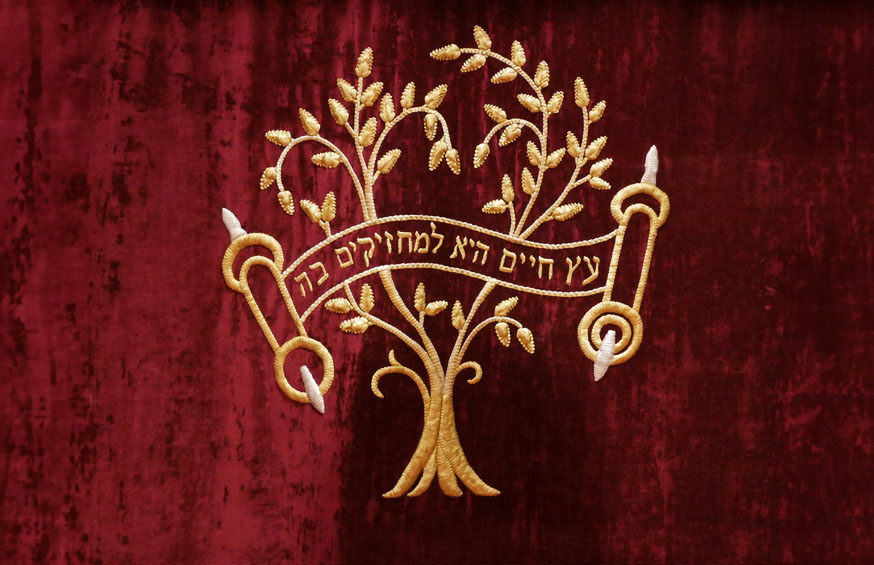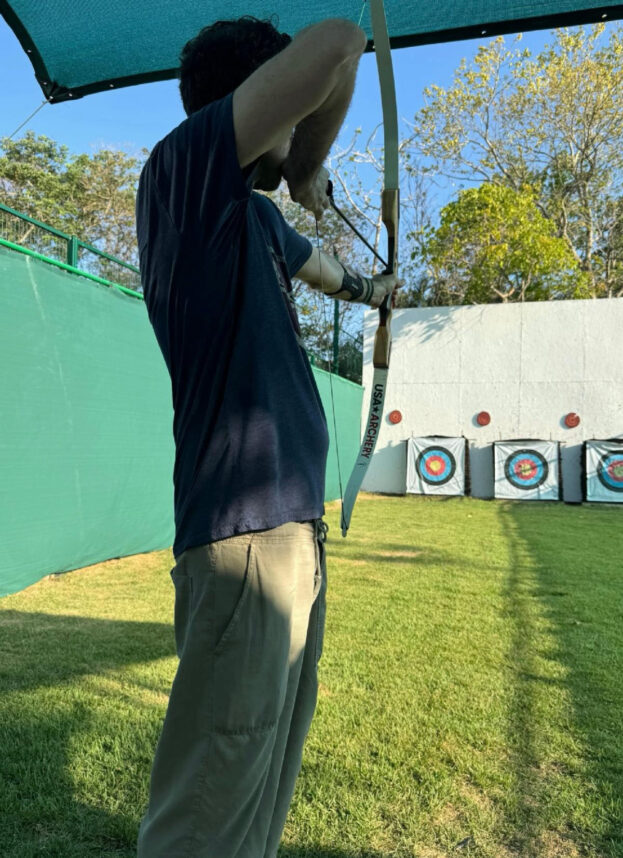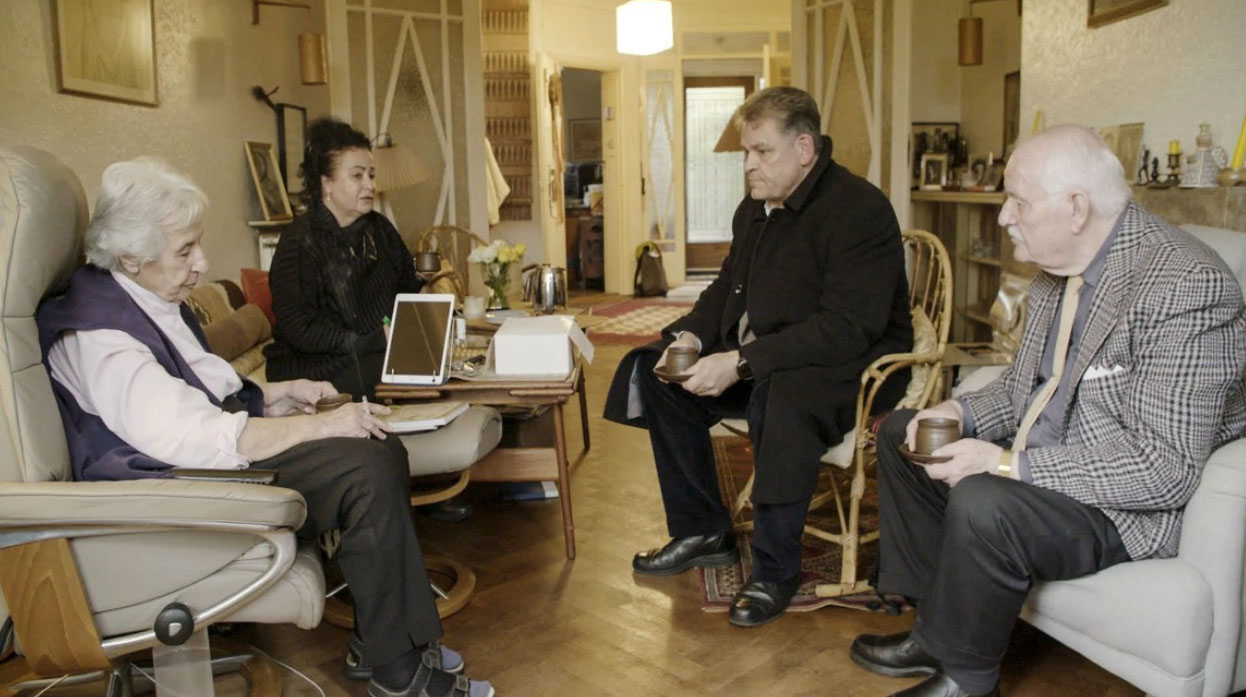Attempting to broaden its outreach to adults with little understanding of Judaism, the Chabad-Lubavitch Orthodox movement has professionally developed a suite of college-style courses and schooled a select group of rabbis in modern teaching methods.
The result is a fast-growing national adult-education network that offers short, reasonably priced, noncredit classes designed to avoid intimidating time-pressed students who know little of their religion or Hebrew and are strangers to the inside of a synagogue.
Expanding from 15 pilot locations in 1998, Chabad’s Jewish Learning Institute (JLI) will offer a unified curriculum across 65 cities beginning this month, including four sites in Orange County. The curriculum, consisting of three eight-week courses taught sequentially during the school year, already is gaining interest from national Jewish educators, and has the potential to gain further mainstream acceptance as JLI officials participate in the annual meeting of Jewish federations next month in Philadelphia.
The costly undertaking to devise its own adult-education initiative also reflects a significant shift in the decentralized culture of the Chabad-Lubavitch movement since the 1994 death of its charismatic spiritual leader, Rabbi Menachem M. Schneerson.
The Rebbe regularly dispatched shlichim (emissaries) — rabbis who would pioneer outreach to unaffiliated Jews. They still operate with relative independence, generally without the oversight of a community board of directors or direction from headquarters. JLI, however, is an exception. The top-down program demands that licensees, mostly shuls and Jewish community centers, hew to certain standards for lesson plans, professional development, course fees, even the school calendar.
“To spark the interest of those who have no affiliation with the Jewish community, we’ve spent a tremendous amount of time and money to develop materials that speak to them, notwithstanding their Jewish education,” said Rabbi Efraim S. Mintz, JLI’s director in New York.
JLI-developed courses focus on specific themes and draw on both scholarly secular sources and the history of Jewish religious literature. The fall offering is titled, “From Sinai to Cyberspace: The Development and Relevance of Jewish Law.”
Such an approach seems far from radical, but it was a big leap for an organization of yeshiva-trained rabbis. To them, study meant line-by-line analysis of the Talmud, the 60 volumes of oral Jewish traditions and rabbinic commentaries that date back 1,800 years.
“We had to be re-educated in the way we presented,” said Rabbi David Eliezrie of Yorba Linda’s North County Chabad Center, which will offer one class.
The instructor is Rabbi Aron D. Berkowitz of Huntington Beach’s Congregation Adat Israel, who will also teach at JLI sites in Newport Beach and Huntington Beach. Recently, he devoted two days to mandatory training on the new class. He conceded that his approach will reflect his own Orthodox orientation and, unless prompted by students, is not likely to suggest differing views of Jewish practice.
“The sources are traditional; taking ancient messages and applying it to Jewish living,” Mintz explained. “If the world is able to view us as one Jewish people, why can’t we?”
One of the few lay leaders on the JLI board is Andrew Effrat, dean of the School of Education at the University of Massachusetts, Amherst. He schooled rabbis in modern, adult-learning principles that emphasize being less didactic and more interactive. “To the credit of JLI, they were interested in looking at ways to be more engaging,” he said.
JLI courses are both shorter and cheaper than many offered by synagogues, such as the two-hour, 18-week, $325 “Introduction to Judaism” offered at Santa Ana’s Temple Beth Sholom. JLI fees are subsidized and limited to $129 or less per course. Weekly sessions last no more than 90 minutes.
There are few other comparable nationally known, adult-enrichment programs. The most well-known are both two-year programs. The Florence Melton Adult Mini-School, developed by Jerusalem’s Hebrew University, is currently offered in 60 cities. Another is the Me’ah program, developed by Boston’s Hebrew College, which is taught in six U.S. cities.
“This is the only place in the country where it doesn’t work,” said Joan Kaye, director of Orange County’s Bureau of Jewish Education, who attempted to offer the Melton course. “I can never get people to commit.” This month, the bureau is offering a 30-week, $295 “Foundations” course taught by two local rabbis, who are polar opposites.
Survey results of Melton alumni show why Jewish leaders prize adult-education. In a study of 346 Melton graduates last year, they described themselves as more likely to support Jewish day schools, increase their attachment to the Jewish community and be more enriched by religious observance.
“For Jewish education to be successful it must be transforming,” said Rabbi Eric M. Lankin, director of religious education for New York-based United Jewish Communities (UJC). “Jewish education for intellectual pursuits is not the goal.”
Lankin does not endorse any specific program for use by UJC’s 156 individual federations, though he recently observed JLI training in Summit, N.J. “Chabad is making a tremendous contribution with this program,” he said.
Chabad, established in the United States just 50 years ago, is growing fast, if counting synagogues is an indicator. While just 10 percent of the Jewish population identifies as Orthodox, 40 percent of the 3,728 congregations are Orthodox, according to a recently released census by the American Jewish Committee. Of these, 23 percent are tied to Chabad-Lubavitch. Orthodox congregations draw from their immediate neighborhood because members refuse to drive on Shabbat.
In a sign that Chabad is shedding its insularity and trying to strengthen ties to more established Jewish institutions, JLI officials for the first time attended a UJC adult-education conference in Chicago this summer.






















 More news and opinions than at a Shabbat dinner, right in your inbox.
More news and opinions than at a Shabbat dinner, right in your inbox.